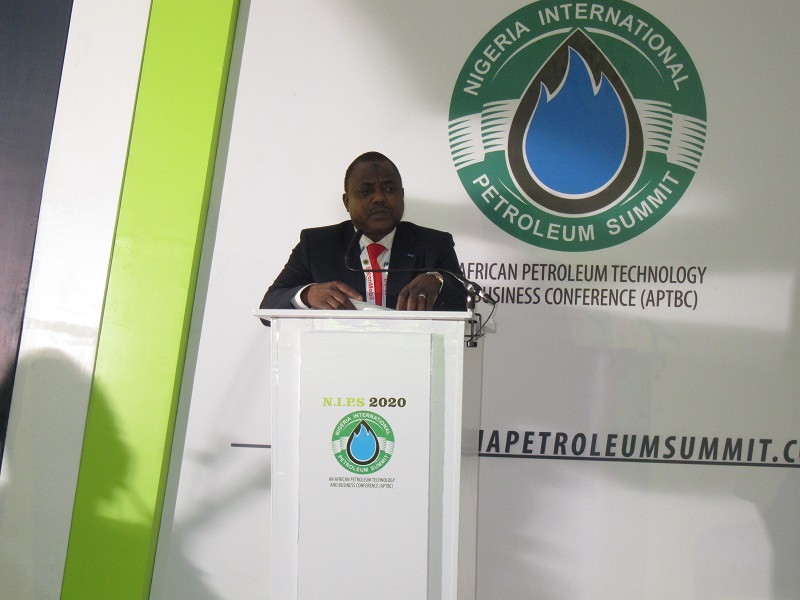Engr. Sarki Auwalu, DPR Director
-By Divine-Favour Efemena
The Department of Petroleum Resources (DPR), is Nigeria’s oil industry regulator with primary responsibility of ensuring compliance in petroleum regulation guidelines.
Recently, the Director of DPR, Engr. Sarki Auwalu, made a presentation at webinar organised by the World Energy Council (WEC).
The Global Energy Dynamics
Engr. Auwalu submitted that the key fundamental of oil industry is supply/ demand balance and since oil price crashed with environment and climate change, it results to issues in the industry. There are also geopolitics arising from OPEC versus Non-OPEC, regional instability and resource socialization. New technology, alternative energy, renewable with shale have all posed threats and challenges to the oil industry.
This current pandemic affects transport system, from political to economics and operations, Auwalu said “the small virus has a big impact on businesses. Many economies shut down, tourism went blank, set back on market globally, hospitality industry and a lot of small and medium enterprises also affected.” The worst hit is the energy sector. The sector powers world economy through various forms of energy.
The oil industry has been under-performing against the 500 S&P paltry over the past 15 years and the impact of global financial crisis of 2008 affected the industry.
Engr. Auwalu further stated that the oil industry oils the will of Nigerian economy, as it forms 80% of government revenues and principal source of foreign exchange. It is the country’s major source of direct foreign investment. Covid-19 reduces budget while the bench mark went down. Every facet of Nigerian economy from agriculture, finance, telecoms, real estate among others are impacted.
The DPR boss said, the country will have to live with the virus, “A bicycle can only be stubborn if you ride it.” Business must remain afloat. For every challenge, new opportunities emerge, so the new thinking and approach are to reposition for business optimization.
Strategy for Survival
How can the industry survive and thrive? How can the industry be prepared towards funds? Auwalu pointed out that to survive, operators must learn how to reduce cost. Cost control management, business efficiency, financial stewardship and corporate governance remain the keys to success. However, these keys have to be goals and new ways to approach. Portfolios should be rationalized and optimized while re-negotiating all viable contracts.
Strategic partnership, contracting models need to change and service providers come together to share risk and returns.
For new businesses and operational resilience, there should be practical integration model with operational excellence for profit optimization. These are decisions to be taken for survival, so as to thrive in post Covid-19.
Policy and Regulation
In terms of policy, regulation, business environment and investment drive opportunities will be created.
Engr. Auwalu revealed that the government brings marginal field bid round when the industry is faced with challenges because it will guarantee investment and create more businesses. It will also ensure that companies are permitted to participate for integration, it is indeed an opportunity for sustainable growth.
Overview of DPR
According to Auwalu “only an engine flies during storm” thus, discovered abandoned fields for more than 10 years, that can be drilled and classified as marginal by International Oil Companies (IOCs), opportunities will be given to indigenous companies so as to be empowered. It is strategic at this time to drill these fields for the country to benefit from them.
The DPR Director said other opportunities are to improve oil recovery and assist the industry to meliorate cost of production so as to sharpen resources.
The regulator has plans for innovation, resilience, partnership and collaboration for industry growth and sustainable development.
Responding to a question why the government is deciding on marginal field bid round when investment is low and access to funds difficult, Engr. Auwalu was of the view that there will be price reduction from OPEC.
In some of the fields, the cost of production is high and it is being reduced due to low price. Moreover, these fields are small and cost of producing them is not as high as the usual frame work that was operated by IOCs. “So, that is the reason we thought it wise to bring it at this time when it is very hard to get huge investment.”
The DPR Director added that when projects are being abandoned, i.e the bigger projects that required millions and billions of dollars, then what can be done presently due to low price is to get subnormal fund to produce oil and get the resources out for Nigerian people.
Another reason is that, marginal field is only for Nigerian oil indigenous companies, it is designed to enhance capacity. Prior to 2003 when bid round began, there was no indigenous producer in Nigeria. It is now a success and provides opportunity for local companies to prove their worth.
On the Petroleum Industry Bill (PIB) that is still being processed for more than a decade with about four versions, Auwalu noted that even though it is in progress and has not been passed into law, the industry is not static. The oil industry in Nigeria has witnessed many inventions and transformations such as divestment and among other sustainable development.


Comment here